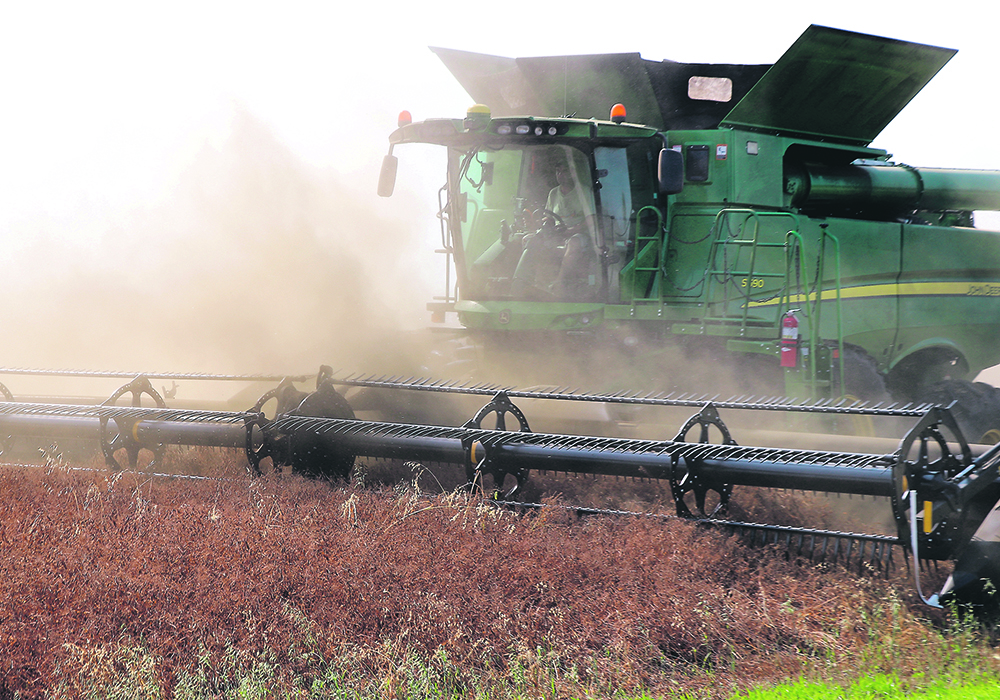WINNIPEG — On a hockey team, every player should have a role: a defensive centre, who shuts down the opponent’s star player; or a small but skilled defenceman who anchors the power play.
It’s the same in a farm business. Everyone needs a specialty or an important role, but sometimes young people struggle to find that role on the family farm.
“(That’s) what we’re hearing from that next generation, is they’re not sure how they get a place on the farm,” said Evan Shout, chief financial officer of Hebert Grain Ventures, a 42,000 acre grain farm near Moosomin, Sask.
Read Also

Canola oil transloading facility opens
DP World just opened its new canola oil transload facility at the Port of Vancouver. It can ship one million tonnes of the commodity per year.
Shout is also a coach with Farmer Coach, which provides training programs in farm business management. To help young producers gain confidence and define their specialty on the farm, Farmer Coach is offering a course called Farm Business Foundations.
The one-day event was scheduled for June 24, but the Farmer Coach team has decided to push the one-day course to November 12th.
“It essentially covers the foundations of the finance side, the HR side, the operations side … to give them an introduction into farm business,” said Shout.
The course isn’t just for sons and daughters who seek a bigger or clearer role in family business. Some farms may send an employee who hopes to enhance skills and knowledge.
A key aspect is farm finances and financial data. As farms get larger, understanding the numbers has become more critical. Young producers may learn how to grow crops at university or ag college, but may not be schooled in farm finances.
“I’ve seen enough of the university courses … they cover agronomy very well … but they’ve always left out the finance side,” Shout said from his office in Saskatoon.
“But the finance side has become just as important or even more important.”
It’s impossible to teach financial analysis or accounting in a single day but the idea is to provide young farmers with basic principles so they can “start a life long of learning,” Shout explained.
“Your accountant is going to give you a set of financials every year. What are you looking for? What are the top three things in those financials that you want to see and understand?”
The course also involves other aspects of running a business, including a common practice at most companies – developing a mission statement that can provide clarity and direction.
“Your farm’s mission and vision statements help guide your business … They help guide your decisions about marketing strategies and enterprises,” says a University of California farm business website.
“A mission statement is a set of guiding principles, including your values, that describe why and how you farm.”
Such statements are often connected to strategy. Some farm business on the Prairies may focus on long-term expansion. Others may be more interested in diversity and value-added opportunities.
“As these farms grow and expand and land prices where they are … strategy was one of those discussions that we’ve put on the shelf in the past. It’s now become vital,” said Shout.
“Without having that mission statement and core values … it’s very difficult to know where you want to go.”
Knowing where the farm is headed in 10 to 15 years may be critical, but so is knowing your role on the farm today.
Shout sees many cases where a dad and his son have the same set of skills. The father goes to university and studies agronomy. And the son?
“Well, he goes and gets an agronomy degree,” Shout said.
Now there are two agronomists on one farm.
“No other business would do that.”
Farms, like most businesses, need a team with distinct specialties and skills. That way, everyone has a defined position in the operation, Shout said, “and nobody is fighting for the same job.”
The Farm Business Foundations course will be held June 24 at the Alt Hotel in Saskatoon. For more info, go to farmercoach.ca.
















